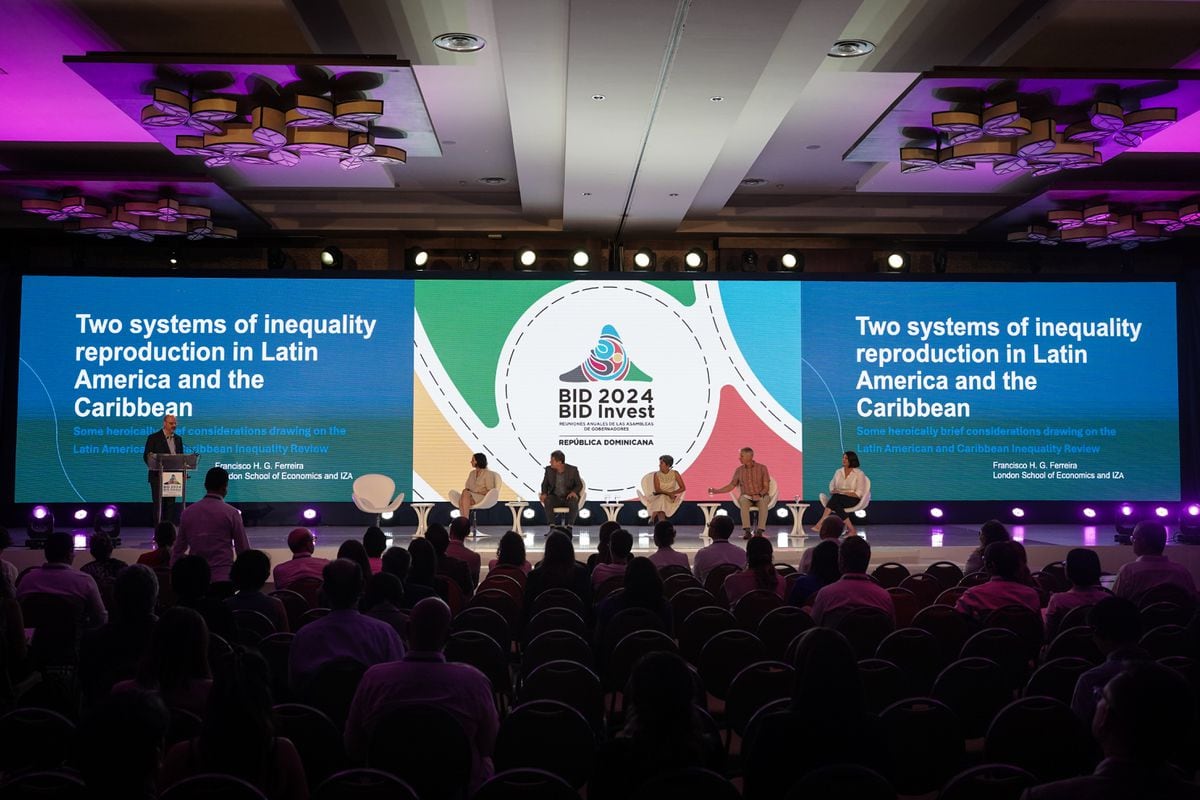Fifteen years ago, journalist Michael Reid characterized Latin America as "the forgotten continent."
Neither as convulsive as the Middle East, nor as poor as Africa, we had simply been left out of the spotlight.
And he was somewhat right.
However, if we open the historical lens, Latin America, as a unit, more than a forgotten continent, is more like a lighthouse —or perhaps a star— that appears and disappears, that tinkles, that announces itself and retracts, according to the seasons.
In the context of independence, for example, Latin America was a common horizon: the great homeland.
With nonexistent nations and incomplete states, what fueled the region's emancipation were certain shared republican principles across the continent—and beyond.
And from then on, there were times when the regional spirit electrified the continent and others when we were once again little more than an aggregation of self-absorbed nations.
Since the end of the 20th century, the idea of Latin America has fallen asleep.
Even when the left of the new millennium built countless organizations of regionalist rhetoric, its ultimate goal was contrary to integration;
They sought to implant a
Westphalianism
that would allow each nation to build the regime it wanted without suffering annoying interference due to attacks on democracy or human rights violations.
And in cultural terms, in the last three decades Roberto Bolaño's work may have been the only deeply Latin American thing in the midst of a literature that had premiered the end of history singing to McOndo.
These days, however, something is moving.
Latin America is back.
The signs are various, but here I would like to dwell on two recent books that observe the region as a unit.
Ñamérica
by Martín Caparrós (
Random House
, 2021) and
Delirioamericano
by Carlos Granés (
Taurus
, 2022) work as an unbeatable tandem to look at “our America”, to say it with Martí.
Their approaches are different for various reasons.
Caparrós writes an overflowing report of Latin America.
It is literary journalism at its best: neither the fireworks of prose overshadow the diligent reporter, nor the detailed investigation impedes the reader's enjoyment.
Granés, on the other hand, is an essayist in the best Latin American tradition.
He is erudite and academic, but he hides the traces of all academicism until they disappear and delivers a book with clear prose and, paradoxically, free of all Latin American delirium.
Now, what are these authors talking about when they talk about the region?
The fundamental difference is that Granés' book has the virtue of including Brazil with full rights;
Caparrós, on the other hand, leaves it out when dealing with the countries on this side of the world that use the letter ñ, Castilian-speakers, hence the concept he uses for the region: Ñamérica.
Caparrós's book is a huge window to today's continent.
The structure of the book alone reveals the Latin American ambivalence well, since the uneven chapters deal with key cities in the region —Mexico City, El Alto, Bogotá, Caracas, Havana, Buenos Aires, Miami and Managua— while the even ones deal with transversal and essential themes for contemporary Latin America.
Caparrós' purpose is almost ontological: “what the hell do we have in common”.
Like Rubén Blades almost forty years ago he could have said “I'm looking for you, America”.
The purpose of
American Delirium
is different.
More than the contemporary soul of the region, he seeks to understand the political roots of the continent.
Or to put it another way, the author's diagnosis of the region is clear: we suffer from a precarious balance incapable of generating progress.
And then the essayist resorts to history: where does this disposition to instability, to comings and goings, where does the pendulum vocation come from?
If he has to simplify arbitrarily, Granés is interested in discovering why we are the way we are, while Caparrós wants to find out what we are today.
To answer their questions, everyone uses different tools.
Granés goes with originality to the history of Latin American poetry and art to find there the cause of a deranged politics and always dominated by the nationalist drive of the right and left.
Contrary to academic political analysis generally focused on institutions, political and social actors, or the political economy of countries, here the Latin American knot falls back on the delusions of its poets;
in the overflow of our painters and in the avant-garde boldness that ended up inflaming our politics to the point of delirium.
Along the way, with sharp conciseness, the author leaves no relevant political episode of the last century without analyzing.
Caparrós, for his part, opens the trunk of his own journey of three or four decades reporting on the continent.
He reports from almost every country, but more importantly, from its slums and farms, skyscrapers and popular markets, from river, sea and mountain.
But it would be unfair to stay only with the verb to report.
The novelist Caparrós also appears here who, with a sharp ear, recreates the speech of Latin Americans.
And, in addition to reporting, he rehearses, analyzes, thinks, imagines, snoops, in a torrent as brainy as it is entertaining.
Both books are timely, moreover, at a time when increasingly elemental or original identities are celebrated, and where "diversity" and "decentration" raise applause just by naming them.
Here, on the other hand, both point to what is common in Latin America, without essentialisms or exoticisms.
More than naming what we are, they are moved by the spirit of finding what we could be.
And what could we Latin Americans be?
It is here when the proposals depart.
Or better to put it without fuss: they contradict each other.
In the penultimate chapter of
Ñamérica —which
Caparrós aptly titled “little pamphlet”— the author makes public his nostalgia for utopia.
If we were the continent of great revolutionary dreams, why not dream of a new utopia that would pull us out of the doldrums?
For Granés, on the other hand, that claim constitutes in itself the Latin American evil;
utopia is the delirium that excites as much as it excludes, the warmth that always culminates in the refrigerator of intolerance.
To finish, let us repeat it: we are facing two great books —and not just two great books, since both are around six hundred pages—.
It would be strange if they had appeared in the same decade, just a few months apart, it's a miracle.
Perhaps they indicate that Latin America as a unit is regaining validity.
They are not the only cultural products that point it out.
podcast like
Radio Ambulante
point in the same direction.
In the academic world the books in the Cambridge Elements series also suggest this.
And, outside the cultural sphere, the recent Latin American experience convincingly indicates that many of our most critical processes —such as the pandemic, the different migrations that cross the continent or the effects of global warming— point to dynamics that far exceed the United States. .
In this sense, it is necessary to reincorporate a Latin American perspective and action.
Ñamérica
and
Delirioamericano
are two beautiful bases to recognize ourselves and speed up that
Latin Americanizing
step .
Alberto Vergara
is a Peruvian political scientist and academic researcher.
He is a professor at the Universidad del Pacífico, Lima








/cloudfront-eu-central-1.images.arcpublishing.com/prisa/W33JSXVPKRF7FMDYEETPSPNNKY.jpg)
/cloudfront-eu-central-1.images.arcpublishing.com/prisa/2C5HI6YHNFHDLJSBNWHOIAS2AE.jpeg)